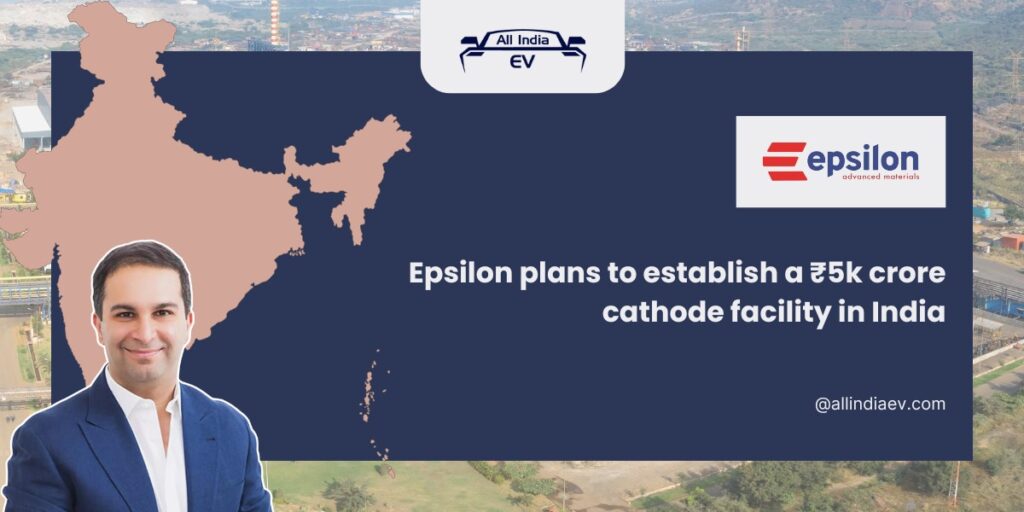
Epsilon to Establish ₹5,000 Crore Cathode Manufacturing Plant in India
Epsilon Advanced Materials (EAM), a multinational supplier of battery material solutions, is searching for land in India to build its Rs 5,000 crore cathode plant. In order to set up the facility and start commercial production by the next year, the business is considering five states, including Telangana, Tamil Nadu, and Karnataka. This breakthrough is near the heels of EAM’s acquisition of the German lithium-ion phosphate (LFP) cathode active material technology center in January of this year.
“We did an acquisition early this year for our cathode business, which requires lithium. We are engaging with states such as Karnataka, Telangana, Tamil Nadu, Gujarat and Odisha for setting up the cathode plant. We look at these five states as industrialisation is happening at a rapid pace and a lot of our customers are also present there and hope to declare our project in the next six months,”
Vikram Handa, MD, EAM told TOI.
Noting that it would take about a year to build the plant, he said, “In 2026, we can be in commercial production. We are quite bullish that the way lithium-ion technology is developing, and the demand for anode and cathode in the next one decade both in India and globally, we would like to capture that market and commercialise by 2026.”
Karnataka is getting a $1.1 billion investment from EAM, an entirely owned subsidiary of Epsilon CO. By 2030, the synthetic graphite anode material produced at the Bellary, Karnataka, manufacturing facility will reach 100,000 tons per annum. In addition, it has facilities for graphite anodes in Finland and the United States as part of its global activities. This company is one of the few globally operating in both the anode and cathode areas. A sizable portion of India’s anode and cathode needs, according to Handa, may be met by the business.
“By 2030, our graphite anode material business with 2,00,000 tons per annum capacity can cater to 100 GW with a topline of about Rs 20,000 crore. Our cathode material business with 1,00,000 tons per annum capacity will cater to 50 GW of cell capacity and it will be close to Rs 10,000 crore of topline by then (2030),”
he added.
Content Credit: Times of India



